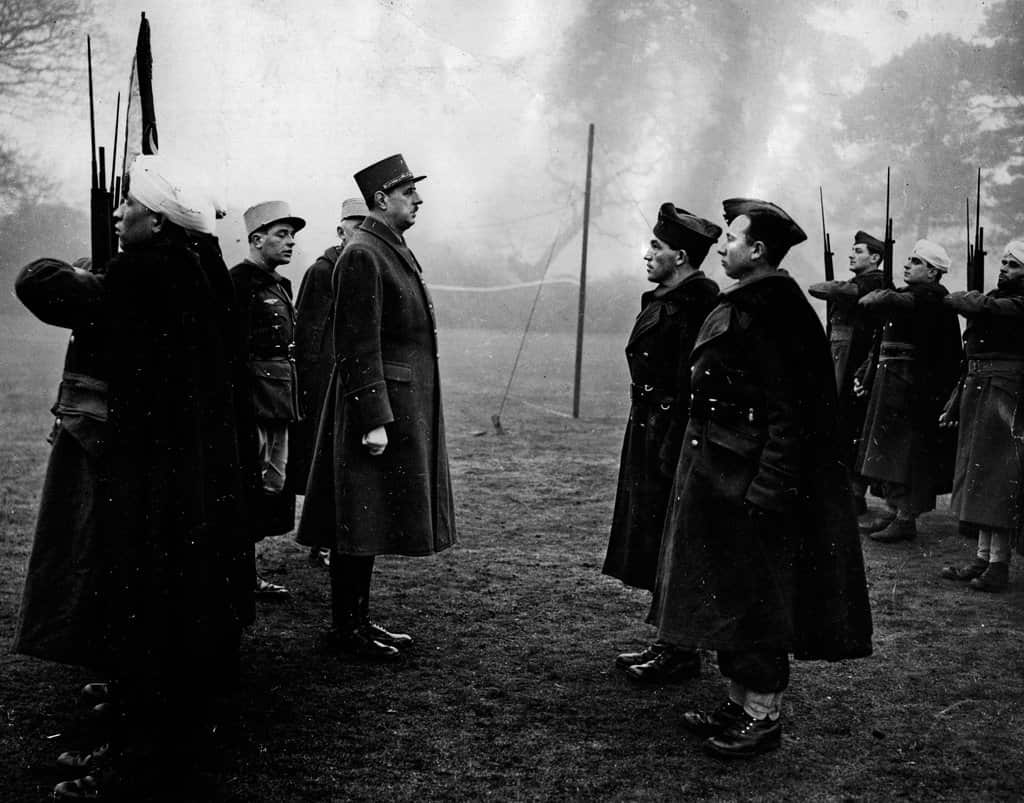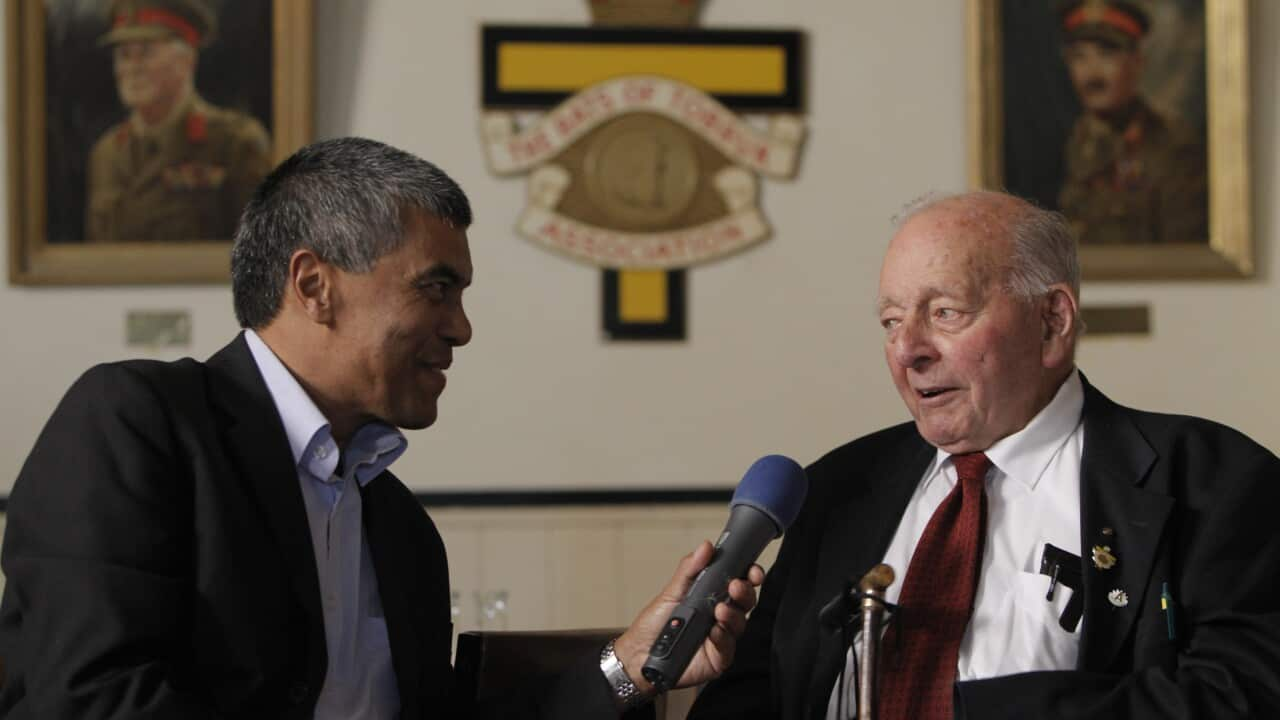Stuart Marriner boarded the Queen Mary in Sydney, and traveled to then Bombay as an Australian soldier. After a fortnight in Hospital with measles he completed his journey to the Middle East, via Palestine and Greece.
Speaking to SBS French in 2010, Marriner, who is now deceased, recalled that only volunteers were allowed to travel overseas to the war, and he detailed the sense of 'mateship' among the troops.
"We were a team, everybody was committed to the team," he said. "It wasn't friendship, it was a total commitment to the team."
"You had good friends, but not close ones, you didn't want to get too attached in case they were killed." - Stuart Marriner
In the end, Marriner's division "was incredibly lucky."
"We were the target of a lot of enemy bombings, but we only lost four or five me."
On the reason why he volunteered to fight, Marriner was clear. It wasn't a sense of adventure that drove him to join the war effort, but the sensation that "there was a job that had to be done" and that "Hitler had to be stopped". There was no question in his mind that he should do his bit.
Reflecting on his experience in the war Stuart Marriner was clear that he "would never support a conflict resolution by a war process ever again".
Marriner's 7th Supply Unit was responsible for running ammunition and supplies to the troops on the front, but his mission ended up being the defence of Tobruk at all costs. Speaking with SBS French, he recalled how the war was fought, and how their nicknames of Rats of Tobruk came about. Marriner also recalled an anecdote of the day he could have been solely responsible for changing the course of the war, and indeed, French history.
Marriner also recalled an anecdote of the day he could have been solely responsible for changing the course of the war, and indeed, French history.

General (Charles De Gaulle) reviewing troops in the middle east in 1941 Source: Hulton Archive/Getty Images
Marriner was driving a three-tonne army vehicle when he nearly ran over General Charles de Gaulle in the town square of Aleppo, Syria in 1941.
As he was driving flat out, Marriner saw a French Army group in front of his car. He swerved left and right, sliding across the mud to avoid them, and there General De Gaulle appeared in front of his vehicle. He narrowly escaped being 'collected' by the front of the car thanks to Marriner's driving and his own bare luck.
"Imagine if I did run over him," said Marriner. "I would have been famous all over the world. I could have done without that!"
Listen to the full interview with Stuart Marriner at the top of this story
After the Middle East, Marriner went on and served in New Guinea and fought the Japanese army "wallowing in mud."
He made his way back to Australia, safe, in late 1943, where he joined an ammunition analysis school in Broadmeadows.
Stuart Marriner passed away peacefully in 2014 at the age of 95.




